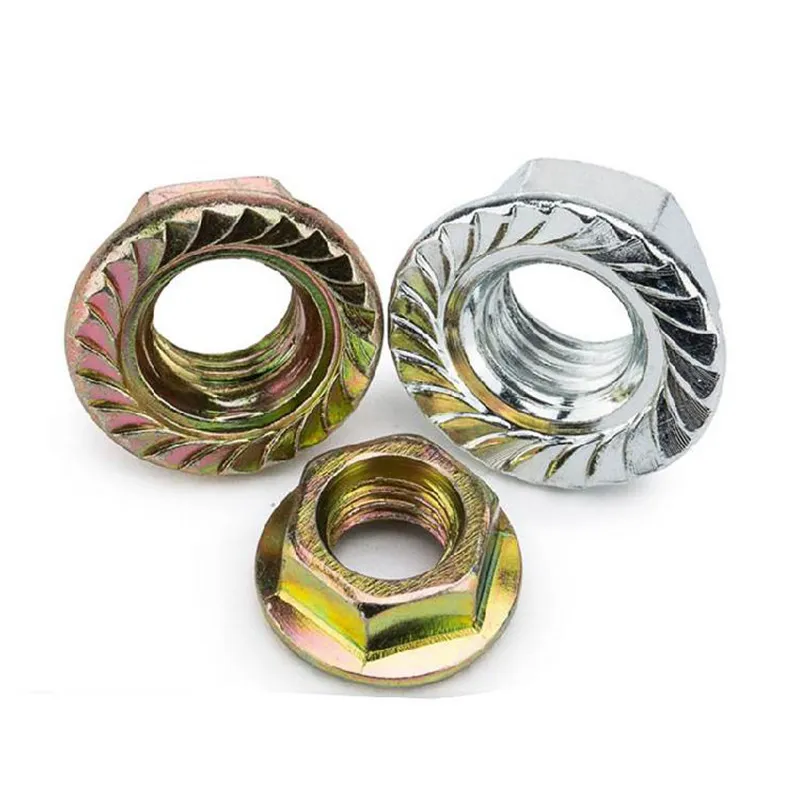

'plain washer and spring washer - a fastener'
Sep . 16, 2024 02:48 Back to list
'plain washer and spring washer - a fastener'
The Role of Plain Washers and Spring Washers in Fastening Systems
In mechanical engineering and construction, fasteners are essential components that play a critical role in holding objects together. Among the various types of fasteners, washers—specifically plain washers and spring washers—are vital in enhancing the performance and durability of joined parts. These simple yet effective devices help distribute loads, prevent loosening, and protect surfaces, making them indispensable in numerous applications.
Plain Washers Basics and Benefits
Plain washers, also known as flat washers, are thin circular plates with a hole in the middle. They are primarily used to distribute the load of a threaded fastener, such as a bolt or screw, over a larger surface area. This distribution minimizes the risk of damage to the material being fastened and keeps the fastener from sinking into softer materials.
One of the significant benefits of plain washers is their ability to provide a smooth surface for better friction, which can be crucial when fastening multiple parts together. They are typically made from various materials, including metal, rubber, and plastic, allowing for flexibility in different environmental conditions. For instance, rubber washers can be beneficial in moisture-prone areas as they offer excellent sealing properties, preventing leaks and corrosion.
Spring Washers Enhancing Joint Stability
Unlike plain washers, spring washers are designed to provide resistance and maintain tension in fastening applications. They are typically curved and create a spring-like effect, allowing them to exert a force on the fastener as it is tightened. This characteristic helps keep the fastener secure, even under vibration and other dynamic loads.
'plain washer and spring washer - a fastener'

There are several types of spring washers, including split washers, wave washers, and conical washers, each serving specific functions. For instance, split washers are often used in critical applications where vibration might loosen the joint over time. They compress during installation and exert a force against the fastener, creating friction that counters any loosening effects. This ability to maintain a clamping force over time makes spring washers invaluable in high-stress environments, such as automotive and aerospace industries.
Choosing the Right Washer for Your Application
When selecting plain or spring washers for a project, several factors must be considered, including the type of materials being joined, the environmental conditions, and the load requirements. For applications where there is minimal risk of loosening and no significant vibration, plain washers may be sufficient. However, in scenarios where movement or vibration is a concern, spring washers provide the extra stability needed to ensure the longevity of the assembly.
Moreover, the choice of material is just as crucial as the type of washer. For instance, stainless steel washers are ideal in corrosive environments, while nylon washers can provide insulation properties.
Conclusion
In conclusion, both plain and spring washers play critical roles in the reliability and effectiveness of fastening systems. Understanding their functions and benefits is essential for engineers and builders alike, as the right choice can significantly impact the safety and durability of structures and machinery. By ensuring that the appropriate type of washer is used, one can enhance the integrity of fastened joints and promote long-term performance in various applications.
Latest news
-
High-Strength Hot-Dip Galvanized Bolts-Hebei Longze|Corrosion Resistance&High Strength
NewsJul.30,2025
-
Hot Dip Galvanized Bolts-Hebei Longze|Corrosion Resistance&High Strength
NewsJul.30,2025
-
Hot Dip Galvanized Bolts - Hebei Longze | Corrosion Resistance, High Strength
NewsJul.30,2025
-
High-Strength Hot Dip Galvanized Bolts-Hebei Longze|Corrosion Resistance, Grade 8.8
NewsJul.30,2025
-
Hot Dip Galvanized Bolts-Hebei Longze|Corrosion Resistance,High Strength
NewsJul.29,2025
-
High-Strength Hot Dip Galvanized Bolts - Hebei Longze Metal Products Manufacturing Co., Ltd.|corrosion resistance&high strength
NewsJul.29,2025

